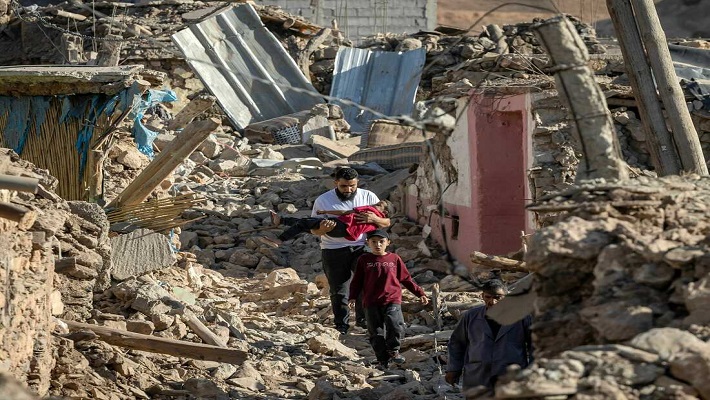By Paschal Norbert
RABAT, SEPTEMBER 15,2023 (CISA)- In the aftermath of the devastating Morocco earthquake that has claimed over 2,800 lives, Cardinal Cristóbal López Romero of the Catholic Archdiocese of Rabat and president of Caritas Morocco has admitted rebuilding the country cannot be said finitely as it could take years.
“I sincerely thank the many people who have shown their solidarity. We encourage you to continue to support us. The reconstruction phase will take months or maybe even years,” Cardinal Romero said in an interview with Caritas Internationalis.
Cardinal Romero explained the dire situation of a people in need, especially, villagers in devastated mountainous areas that are yet to receive help.
“They are small populations, but many, and in a vast expanse of territory, in highland areas that were already difficult to reach and which now, with the destruction of the roads and the additional difficulties caused by the earthquake itself, are even more difficult to reach,” says Cardinal López Romero.
According to the Spanish-born cardinal, Caritas Morocco is providing aid to the people in Amizmiz, a small town located some 55 kilometres South of Marrakesh and one of the worst hit by the earthquake.
In a statement issued on September 11 by Fr Óscar Arturo, the Director of Caritas Rabat, on the situation in Amizmiz, “All the houses were destroyed by the earthquake and people are staying outside. These people have found a few tents to spend the night, but the fragility of the tents that were supposed to shelter them is perceptible.”
Fr Arturo says they plan to make the town a “centre from which we can deliver our aid,” adding that “We asked the people what they needed at the moment. For them, what they need at the moment is a generator to have electricity at night and to be able to recharge telephones to be able to communicate with the outside world, more tents to spend the night, mattresses, blankets, and simple first-aid equipment.”
He explains, “The helplessness and fragility are obvious; the looks on people’s faces, after the experience, show fatigue and concern. After spending a good deal of time with them, we have decided to send a first convoy to bring them a generator, clothing, first aid kits, food, medicine and, if possible, tents.”
This notwithstanding, Cardinal López Romero notes the populace is still in need of more help beyond the obvious, “Most of all, I think they will need people to come and support them because psychologically and spiritually they are very affected.”
The cardinal also decried a lack of coordination among the many agencies that are scrambling to offer humanitarian aid, maintaining that he is in dialogue with the government and those involved.
“On the one hand, there is the government, the Moroccan state, which has provided the army, companies such as the phosphate company, transport trucks, ambulances, etc. And on the other hand, there are the forces from the countries that have been allowed to contribute to the response,” he notes.
On the overall response to the earthquake, he says “There is an outpouring of solidarity and commitment. Many civil society organizations and the government are doing their utmost to come to the help of these afflicted people. So we also belong to the global community and we have to be part of this whole, which must be coordinated.”
In a statement on September 9, the member of the Salesians of Don Bosco (SDB) appealed for “emotional and effective solidarity with those in distress at this time.”

